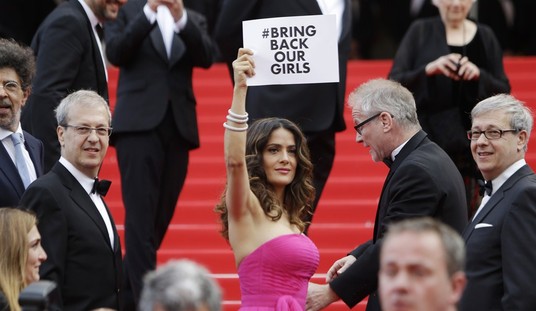(cross-posted from Pajamas Media so you can all have at me… it’s a tradition)
This week let’s get straight to my most recent viewing of Academy screeners. So far I have been restricting myself to films about which there is Oscar buzz. I will get to others later, because I understand there are some surprises.
Narnia
We are in a period in cinema history when “family films” seem more creative and enduring than adult movies. Who has been more consistently interesting in recent years than Japanese animator Hayao Miyazaki (Spirited Away)? And of course there is the long line of Harry Potter films, Shreks, etc., all of which show considerable originality and richness of storytelling seemingly abandoned in grownup filmmaking. I’m not sure what this tells us, but the latest triumph in the family area is Narnia, clearly one of the best movies of 2005 and I would say, of the ones I have seen so far, the film most likely to last.
Disney has struck long-term gold once again with this excellent adaptation of C. S. Lewis’ The Chronicles of Narnia. On every level, co-writer/director Andrew Adamson (of the aforementioned Shrek series) has delivered a handsome, well-crafted production that is clearly faithful to its highly regarded source material – or faithful enough. Especially good are the performances he has gleaned from his child actors, notably Georgie Henley as little Lucy. She’s too adorable for words. James McAvoy as Mr. Tumnus, the Faun, and Tilda Swinton (as always) as the White Witch also do superb jobs. “Tech creds all fine,” as the say in Variety.
What the Academy will think: Not sure. This is excellent work but the Academy membership skews (seriously) geriatric and this will be perceived as a kids’ movie. Such films are usually relegated to the animation category where, obviously, Narnia doesn’t fit. Still, I predict nominations, but not as many as deserved.
Good Night, and Good Luck
George Clooney’s Good Night, and Good Luck is more an act of self-congratulation than it is a movie. Bracketed by an awards ceremony that seems like an afterthought added to emphasize the importance of what we will be seeing, this film purports to tell the story of broadcaster Edward R. Murrow’s 1950s crusade against Red-baiting Senator Joseph McCarthy. But in their zeal, Clooney and his collaborators forgot to write a fleshed-out screenplay with any real conflict or development, nor have they given us much historical context. The result is a dull enterprise oddly resembling a Nineteenth Century melodrama in which we are supposed to applaud the hero – the hard-charging, hard-smoking Murrow – and hiss the villain – the perpetually unshaven ‘Tailgunner’ Joe. But we don’t care much about either of them. In violation of Screenwriting 101, neither Murrow nor McCarthy has what is known in Hollywood as a “character arc” (e. g. some personal growth or change from the movie’s action), so they both remain largely stick figures, though David Strathairn as Murrow labors mightily in his imitation of the broadcaster. In fact, though Murrow is the dominant figure in the film (McCarthy hardly appears) we learn virtually nothing of his private life, who he is or where he gets his determination. It’s one static newsroom scene after the other punctuated by soporific interludes by a blues singer that give you plenty of time to go out for popcorn in a short 93-minute movie that feels padded.
Now I admit, having lately left the liberal “church,” my views of this film may be suspect. I did find peculiar, however, (though not surprising) the movie’s complete omission or ignorance of newly revealed details from that period, including the discovery of KGB files indicating Hiss, the Rosenbergs, etc., actually did spy for Stalin, passing atomic secrets to a regime that murdered tens of millions of its own people. Although this does not exonerate the repellent and opportunistic McCarthy, it makes for a more complex vision of those times and a much more interesting film.
How the Academy will regard: Though several members have told me in private they share my view, the “church”-going Academy will applaud this film and reward it with several Oscar nominations, probably including screenwriting. Go figure.
Crash
Initially, I found Paul Haggis’ dark vision of multi-cultural Los Angeles with every ethnic group at each other’s throat disturbing, even a little dishonest. Perhaps I am naive, but I don’t regard the city where I have lived for over thirty years to be as much of a hotbed of racism as he does. I have been many places far worse. Indeed, the extraordinary melting pot of Southern California can be seen more as a symbol of hope – and perhaps that is what Haggis is getting at in his way, because by the end of the movie he was winning me over. The story surprises you – Haggis is a fine writer, as he showed in last year’s Million Dollar Baby – with the ability to go deeper into his material. Tragedy occurs. Racists redeem themselves. Grace is achieved.
If you haven’t seen this movie, rent it, but don’t expect a “pleasant” experience. (Oh, and Haggis, a first timer, directs well. But then, as most of us know, pace the auteur theory, writing is more difficult.)
How the Academy will regard: Another well-deserved screenwriting nomination for Haggis.
(Pajamas Media co-founder Roger L. Simon is a member of the writers branch of the Academy.)









Join the conversation as a VIP Member